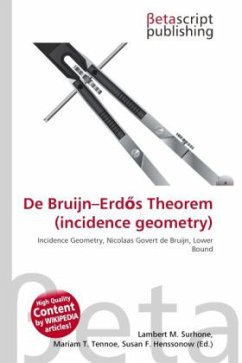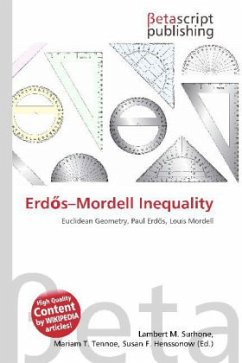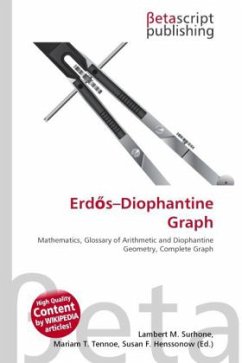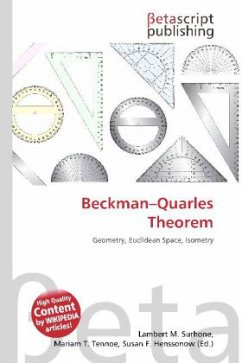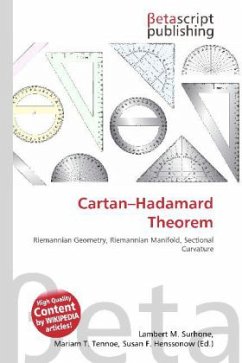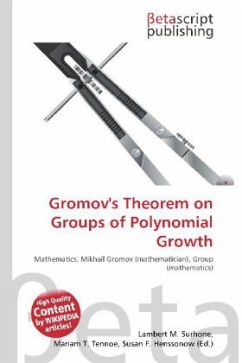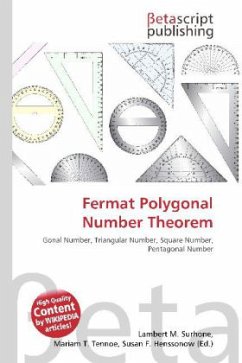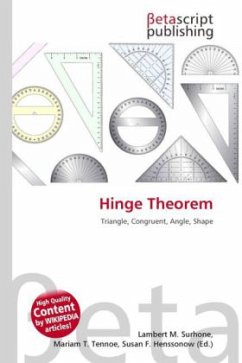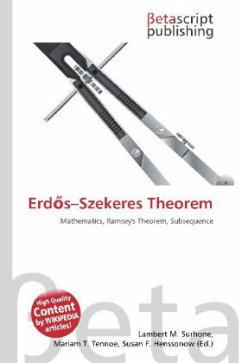
Erd's Szekeres Theorem
Versandkostenfrei!
Versandfertig in 6-10 Tagen
23,99 €
inkl. MwSt.

PAYBACK Punkte
12 °P sammeln!
Please note that the content of this book primarily consists of articles available from Wikipedia or other free sources online. In mathematics, the Erd s Szekeres theorem is a finitary result, which makes precise one of the corollaries of Ramsey''s theorem. While Ramsey''s theorem makes it easy to prove that any sequence of distinct real numbers contains either a monotonically increasing infinite subsequence, or a monotonically decreasing infinite subsequence, the result proved by Paul Erd s and George Szekeres goes further. For given r, s they showed that any sequence of length at least (r 1)...
Please note that the content of this book primarily consists of articles available from Wikipedia or other free sources online. In mathematics, the Erd s Szekeres theorem is a finitary result, which makes precise one of the corollaries of Ramsey''s theorem. While Ramsey''s theorem makes it easy to prove that any sequence of distinct real numbers contains either a monotonically increasing infinite subsequence, or a monotonically decreasing infinite subsequence, the result proved by Paul Erd s and George Szekeres goes further. For given r, s they showed that any sequence of length at least (r 1)(s 1) + 1 contains either a monotonically increasing subsequence of length r, or a monotonically decreasing subsequence of length s. The proof appeared in the same 1935 paper that mentions the Happy Ending problem. Steele (1995) contains "six or more" proofs of the theorem.




